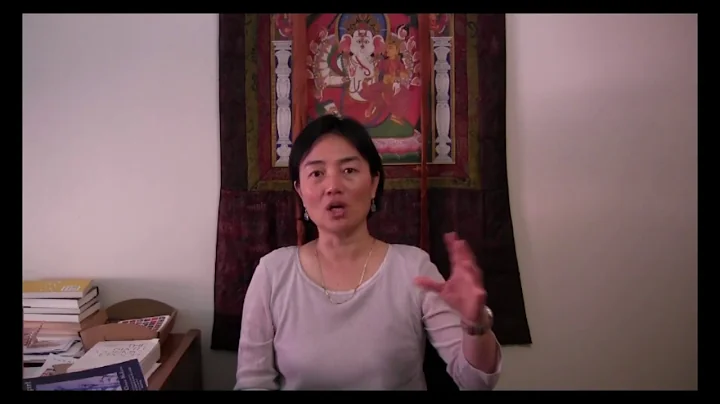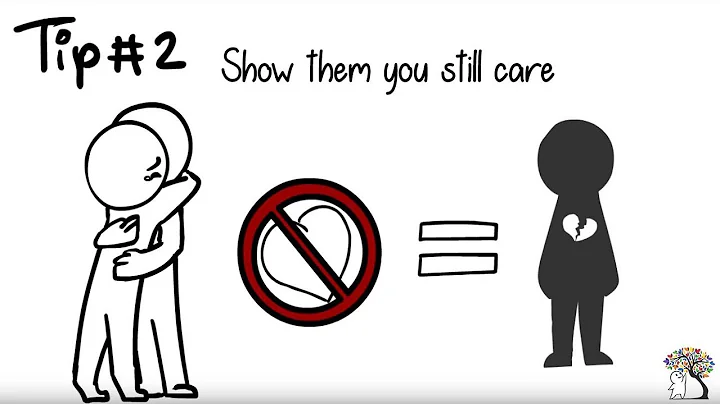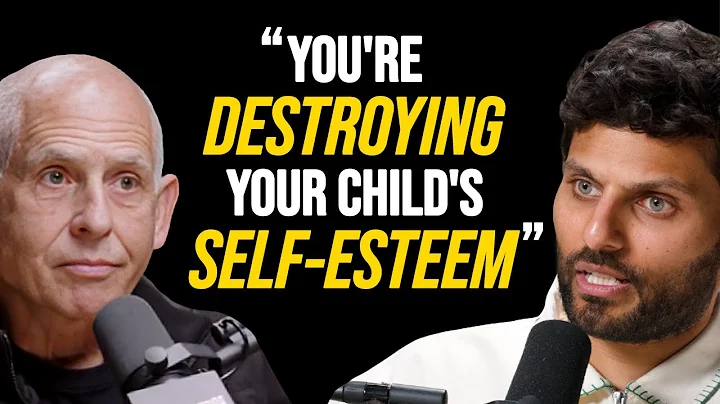"It is said that Emperor Zhu was firmly seated in Fengtian Mansion, and a banquet was held in the Qinggong Building..." There is a saying among the people. It is said that it was Liu Bowen who retreated before the banquet in Qinggong Building. Liu Bowen said to Xu Da, "Celebrating the victory..." Upstairs, stay away from the Lord! "Why?" Just because the Zhu Emperor, Zhu Yuanzhang, was suspicious of the heroes, he actually used gunpowder to blow up the Qinggong Building. Only Xu Da stayed with the Lord for a moment, so he was able to survive when all the heroes were killed!
In one sentence, Zhu Yuanzhang killed people like crazy!
So, is Zhu Yuanzhang really such a murderous person? In the now popular TV series "Mountains and Rivers", Zhu Yuanzhang, played by teacher Chen Baoguo, teacher , and Xu Da, played by teacher Zhang Fengyi, are laughing and joking. At the same time, so far in the plot, Zhu Yuanzhang still loves the hero very much, and even expressed "these" Old brothers, I don’t want to make things too difficult for them. “My tenderness! After thousands of years, what is the truth? Is killing the hero an act of desperation because the hero has many bad deeds, or is it a result of ruthless suspicion?

Picture above_ Ming Taizu Zhu Yuanzhang's bust, Qianlong imperial copy
- How much do you know about Zhu Yuanzhang's achievements
Zhu Yuanzhang was born in Haozhou (today's Anhui) on September 18th, the first year of the Tianli calendar of Emperor Wenzong of the Yuan Dynasty (October 21st, 1328 AD) Fengyang) Zhongli Taiping Township Guzhuang Village in a poor farmer's family. His father is Zhu Shizhen and his mother is Chen. At that time, his name was Zhu Chongba . Zhu Chongba's parents and brothers died when he was young. In order to survive, Zhu Chongba had to go to a temple to become a monk - so he went to Huangjue Temple (then called Yuhuang Temple) to register.
However, there were too many monks and too little rice, and there was no food left in the temple. Zhu Chongba had no choice but to beg for alms (begging for food) in order to have enough food for a while! Zhu Chongba, who traveled far and wide, kept working hard to survive, and finally found that he could only survive by rebelling! As a result, he participated in the Red Turban Army uprising at the end of the Yuan Dynasty.
Zhu Chongba, who survived a narrow escape, defeated the Yuan army and Zhang ShichengChen Youliang. Therefore, in the first month of the first year of Hongwu (1368 AD), the emperor was located in Yingtianfu (now Nanjing), with the country name Daming and the reign name Hongwu.
One person cannot accomplish these many great things! So had heroes from Yuntai Pavilion in the Eastern Han Dynasty, and heroes from Lingyan Pavilion in the Tang Dynasty. Lao Zhu was no exception. He selected many meritorious officials after the founding of the country. However, because he later killed many of them and later generations rehabilitated some, there are different versions: there are twenty-one meritorious officials, and there are twenty-four meritorious officials. Thirty-four meritorious officials said it, thirty-six meritorious officials said it, and forty meritorious officials said it. The highest number was sixty-six meritorious officials said it.

Above picture_ The Red Scarf Army was the main force in the people's rebellion against the Yuan Dynasty in the late Yuan Dynasty.
For the sake of fairness, the author will explain according to the sixty-six heroes.The order is in the order of Dukes and Bozi men.
The following is the list of Dukes and Counts created by Zhu Yuanzhang.
Duke
 , Duke Xu Da of Wei 2, Duke Chang Yuchun of E, Zi Changmao 3, Duke Li Shan of South Korea 4, Duke Cao Li Zhen, Son Li Wenzhong 5, Song Guogong Feng Sheng 6, Wei Guogong Deng Yu 7, Xin Guogong Tang He 8, Liang Guogong Lan Yu 9, Lelang Gong Puying 10, Ying Guogong Fu Youde
, Duke Xu Da of Wei 2, Duke Chang Yuchun of E, Zi Changmao 3, Duke Li Shan of South Korea 4, Duke Cao Li Zhen, Son Li Wenzhong 5, Song Guogong Feng Sheng 6, Wei Guogong Deng Yu 7, Xin Guogong Tang He 8, Liang Guogong Lan Yu 9, Lelang Gong Puying 10, Ying Guogong Fu Youde
Marquis
 1, Yan'an Hou Tang Shengzong 12, Ji'an Hou Lu Zhongheng 13, Jiangxia Hou Zhou Dexing 14, Huai'an Xiuhua Yunlong 15, Jining Hou Gushi 16, Changxing Hou Geng Bingwen 17, Linjiang Hou Chen De 18. Gongchang Hou Guo Xing 19. Liu'an Hou Wang Zhi 20. Yingyang Hou Zheng Yuchun 21. Pingliang Hou Fei Ju 22. Jiangyin Hou Wu Liang 23. Jinghai Hou Wu Zhen 24. Nanxiong Hou Zhao Yong 25. Nan'an Hou Yu Tongyuan 26. Guangde Hou Huagao 27. Yingyang Hou Yang Jing 28. Qi Guogong Kang Maocai 29. Yongjia Hou Zhu Liangzu
1, Yan'an Hou Tang Shengzong 12, Ji'an Hou Lu Zhongheng 13, Jiangxia Hou Zhou Dexing 14, Huai'an Xiuhua Yunlong 15, Jining Hou Gushi 16, Changxing Hou Geng Bingwen 17, Linjiang Hou Chen De 18. Gongchang Hou Guo Xing 19. Liu'an Hou Wang Zhi 20. Yingyang Hou Zheng Yuchun 21. Pingliang Hou Fei Ju 22. Jiangyin Hou Wu Liang 23. Jinghai Hou Wu Zhen 24. Nanxiong Hou Zhao Yong 25. Nan'an Hou Yu Tongyuan 26. Guangde Hou Huagao 27. Yingyang Hou Yang Jing 28. Qi Guogong Kang Maocai 29. Yongjia Hou Zhu Liangzu
 0. Linchuan Hou Hu Mei 31. Dongping Hou Han Zheng 32. Yichun Hou Huang Bin 33. Xuanning Hou Cao Liangchen 34. Runan Hou Mei Sizu 35. Henan Hou Luju 36. Zhongqin Bo Wang Guangyang 37. Yongcheng Hou Xue Xian 38, Xiping Hou Muying 39, Anqing Hou Qiu Cheng 40, Fengxiang Hou Zhang Long 41, Anlu Hou Wu Fu 42, Xuande Hou Jin Chaoxing 44, Huaiyuan Hou Cao Xing 45, Jingning Hou Ye Sheng 46, Jing Chuanhou Cao Zhen 47, Huining Hou Zhang Wen 48, Xiongwu Hou Zhou Wu 49, Dingwan Hou Wang Bi 50, Chongshan Hou Li Xin
0. Linchuan Hou Hu Mei 31. Dongping Hou Han Zheng 32. Yichun Hou Huang Bin 33. Xuanning Hou Cao Liangchen 34. Runan Hou Mei Sizu 35. Henan Hou Luju 36. Zhongqin Bo Wang Guangyang 37. Yongcheng Hou Xue Xian 38, Xiping Hou Muying 39, Anqing Hou Qiu Cheng 40, Fengxiang Hou Zhang Long 41, Anlu Hou Wu Fu 42, Xuande Hou Jin Chaoxing 44, Huaiyuan Hou Cao Xing 45, Jingning Hou Ye Sheng 46, Jing Chuanhou Cao Zhen 47, Huining Hou Zhang Wen 48, Xiongwu Hou Zhou Wu 49, Dingwan Hou Wang Bi 50, Chongshan Hou Li Xin
 1, Puding Hou Chen Huan 52, Dongchuan Hou Hu Hai 53 , Wuding Hou Guo Ying 54, Heqing Hou Zhang Yi 55, Hangzhou Hou Zhang He 56, Junshan Hou Zhu Shou 57, Haixi Hou Nahachu 58, Quanning Hou Sun Ke 59, Yongding Hou Zhang Quan 60, Yuexi Hou Yu Yuan 61 , Xicheng Hou Li Jian 62, Licheng Hou Shengyong 63, Deqing Hou Liao Yongzhong
1, Puding Hou Chen Huan 52, Dongchuan Hou Hu Hai 53 , Wuding Hou Guo Ying 54, Heqing Hou Zhang Yi 55, Hangzhou Hou Zhang He 56, Junshan Hou Zhu Shou 57, Haixi Hou Nahachu 58, Quanning Hou Sun Ke 59, Yongding Hou Zhang Quan 60, Yuexi Hou Yu Yuan 61 , Xicheng Hou Li Jian 62, Licheng Hou Shengyong 63, Deqing Hou Liao Yongzhong
earl
 4, Chengyi Bo Liu Ji 65, Dongguan Bo He Zhen 66, Huixian Bo Sangjing
4, Chengyi Bo Liu Ji 65, Dongguan Bo He Zhen 66, Huixian Bo Sangjing
Everyone loves to see Hu Dahai because of death Before the establishment of and in the Ming Dynasty, and the title of duke after death was posthumous, it was not included in the list.

Picture above_ He Zhen (1321-1388)
- Since ancient times, it is difficult for heroes to die well.
The list of heroes has been listed. So, how many heroes have died well? How many heroes did not end well? How many heroes did not end well and died on the battlefield, and how many heroes did not end well and were killed by Emperor Zhu?
Let’s talk about the Dukes first.
Among the ten Dukes, three died well, namely Li Wenzhong, Deng Yu, and Tang He; two died in the war, Chang Yuchun and Puying; the one who is suspected of not dying well is the one ranked first. Xu Da (steamed goose), the other four were killed, Li Shanchang , Feng Sheng, Lan Yu, Fu Youde.

Pictured above_ Xu Da (1332-1385), courtesy name Tiande1
Let’s talk about the marquis.
Among the marquises, more were killed. Some of them had their fathers killed in battle and their sons killed.Those who truly died well and passed on their titles were Guo Ying and the Yunnan Wang Muying in Jin Yong's novel "The Deer and the Cauldron";
Then let's talk about those who died well but had no heirs and their titles were removed, including Hua Gao, the Marquis of Guangde, Zhou Wu, the Marquis of Xiongwu, and Ding. Marquis Wang Bi, Marquis Dongchuan Hu Hai, Marquis Yongding Zhang Quan, Marquis Liao Yongzhong of Deqing, and Duke Kang Maocai of Qi;
The third category was those who were killed by the emperor (Zhu Yunwen and Zhu Di) after their death - Marquis of Jinghai Wu Zhen, Anqing Hou Qiucheng, Fengxiang Hou Zhanglong, Xuande Hou Jin Chaoxing, Licheng Hou Shengyong, Xicheng Hou Li Jian; and the latter category are those who died well but were returned to the title by their sons after their death, Dongping Hou Han Zheng, Huai'an Hou Hua Yunlong, Jining Marquis Gu Shi, Linjiang Marquis Chen De, Gongchang Marquis Guo Xing, Liu'an Marquis Wang Zhi, Yingyang Marquis Yang Jing, Nan'an Marquis Yu Tongyuan, Yongcheng Marquis Xue Xian, Xuanning Marquis Cao Liangchen;
the remaining twenty-seven are all here. When Zhu Yuanzhang was alive, he was killed and eliminated!

Pictured above_ Liu Ji (July 1, 1311 - May 16, 1375), courtesy name Bowen, was a native of Nantian Township, Qingtian County, Chuzhou (now part of Wencheng County, Wenzhou City, Zhejiang)
Finally, let’s talk about the three earls , except Liu Ji, who was suspected of being poisoned by Hu Weiyong, the other two were all killed.
Well, we can now count it out. According to the above, there were a total of sixty-six heroes of the Ming Dynasty. Thirty-three were killed by Zhu Yuanzhang, with a killing rate of 50%. If even the sons who were killed are included, there are forty-two, with a mortality rate of 63.64%; among the five who can really die well and pass on the title (excluding Xu Da and Liu Bowen), the survival rate is 7.6%! ?

Pictured above_ Lan Yu (? - 1393), the famous founding general of the Ming Dynasty
- It is not easy to be a hero of the old Zhu family! Why exactly?
Looking at the killings of heroes by Ming Taizu, the time is mainly concentrated in the following years: the thirteenth year of Hongwu (1380 AD), the twenty-third year of Hongwu (1390 AD) and the twenty-sixth year of Hongwu (1393 AD). Among these three points in time, the former is the Hu Weiyong case, the middle is the Li Shanchang case, and the latter is the Lan Yu case. The first and third ones are historically known as "Hu Lan's Prison". The Li Shanchang case is actually a continuation of the first case.
It can be said that most of Zhu Yuanzhang's heroes were killed and actually listed on the market and were implicated in the Hu Lan case.
Hu Weiyong and Lan Yu were killed. History records that the former was in a treasonous situation, saying that he had invited Zhu Yuanzhang to a banquet and expected to kill him during the period, but was unexpectedly discovered by the eunuch who came to announce the decree; while the latter was domineering and disobedient, He defiled the concubines of the Yuan Dynasty and tortured and killed the people; but according to today's historians' research, both of them were convicted for being domineering and disobedient. The deeper reason was that Zhu Yuanzhang wanted to reform the system, especially to kill the former Hu Weiyong - Hu was the prime minister, and his position was High authority. During the Ming and Qing Dynasties when feudal authoritarian centralization reached its peak, the emperor did not allow domineering prime ministers.

Picture above_ Hu Weiyong (? - 1380)
But in fact, as early as the Song Dynasty, the power of the prime minister had been equally divided ( The Song Dynasty had several prime ministers, sometimes even as many as six or seven), and was divided (see Deputy Prime Minister for Political Affairs) Monitoring), but because the Mongolians in the Yuan Dynasty valued military merit and rank, they changed the system back to the Sui and Tang Dynasties. Not only did they have two prime ministers - the left prime minister and the right prime minister, but it was even more so than in the Sui and Tang Dynasties, both in name and in reality!
The Ming Dynasty followed the Yuan Dynasty system and also established left and right prime ministers. They also sought military merit and honors. For this reason, Zhu Yuanzhang handed over the first prime minister of the Ming Dynasty to the first meritorious minister Li Shanchang (later rehabilitated due to treason and temporarily ranked third). Zhu Yuanzhang couldn't bear the disturbance when the Huaixi heroes became big, so he appointed Wang Guangyang, who was the top leader of the Zhejiang Heroes Group, as the second prime minister. At the same time, he appointed Liu Ji, a famous official of the Zhejiang Group, as the Minister of Yushitai to be responsible for supervision. Unexpectedly, Wang Guangyang Being timid and fearful of trouble, Liu Ji died in an unknown manner, and he had no choice but to hand over power to Hu Weiyong of the Huaixi Heroes Group.

Pictured above_ Li Shanchang (1314-1390), courtesy name Baishi, was born in Dingyuan, Haozhou (now Dingyuan County, Anhui)
However, the Hu Weiyong group became more and more domineering, and Zhu Yuanzhang had to kill them.But at that time, Zhu Yuanzhang was still aloof to people. It was not until the case of Li Shanchang ten years later that Zhu Yuanzhang became a little bit aloof to people. At that time, he killed Li Shanchang's family and all the heroes with the help of confessions forced under severe punishment. ————It is said that Hu Weiyong once wooed Li Shanchang's younger brother. Li Shanchang was helpless and said: "Then you can take care of it. I am old and can't take care of it anymore!"
However, this is not over yet. Zhu Yuanzhang's mentality Complete collapse came with the arrival of one thing, that is the death of the eldest son Zhu Biao! In the twenty-fifth year of Hongwu in the Ming Dynasty (AD 1392), Prince Zhu Biao died, and Zhu Yuanzhang decided that his eldest grandson Zhu Yunwen would take over. Zhu Yunwen was still young at that time, and Zhu Yuanzhang was afraid that the heroes would be tortured after his death, so he used the blue jade case to go to jail again the next year, and this time he killed 15,000 people again!

Pictured above_ Zhu Yunwen (December 5, 1377 -?), Emperor Jianwen
Of course, we also have to mention the other two cases among the four major cases in the early Ming Dynasty.
The Kongyin case in the ninth year of Hongwu (1376 AD) and the Guo Huan case in the eighteenth year of Hongwu (1385 AD) were purely corruption cases. Zhu Liangzu, who was questioned by several heroes in the early Ming Dynasty, was executed because of corruption. .
From this, we can basically draw a conclusion: the empty seal case first broke out in the early Ming Dynasty. Because his parents died of corruption in the Yuan Dynasty, Zhu Yuanzhang, who hated corruption very much, was extremely angry. Later, he discovered that not only these people in the late Yuan Dynasty The remaining officials (most of the grassroots officials in the Ming Dynasty were left over from the Yuan Dynasty) remained corrupt, and even his old brothers began to become corrupt (such as Zhu Liangzu). Angry, he decided to punish him, so he killed Zhu Liangzu and others. Unexpectedly, this led to a bigger tiger, the Prime Minister Hu Weiyong who was not only corrupt but also domineering. The even more angry Zhu Yuanzhang set up a prison and deposed the Prime Minister.
The subsequent Guo Huan case, the death of his eldest son Zhu Biao, and the young age of his eldest grandson made Zhu Yuanzhang completely sick. His hatred of corruption and fear of meritorious officials made him decide to kill all the meritorious officials! So the fictional and true story of "Bombarding the Qinggong Tower" was left. . .
Author: Niu Yida Correction/editing: Lilith
Reference: "History of the Ming Dynasty"
The text is created by the History University Team, and the illustrations are from the Internet. The copyright belongs to the original author





![The Fall of Emperor Yuan Shih-kai [Eng Sub] 蔡锷北伐袁世凯 - DayDayNews](https://i.ytimg.com/vi/oD-eJJrOBKE/hq720.jpg?sqp=-oaymwEcCNAFEJQDSFXyq4qpAw4IARUAAIhCGAFwAcABBg==&rs=AOn4CLBYxwGiLYHlCD13YEpLZOK0GgeD4A)















